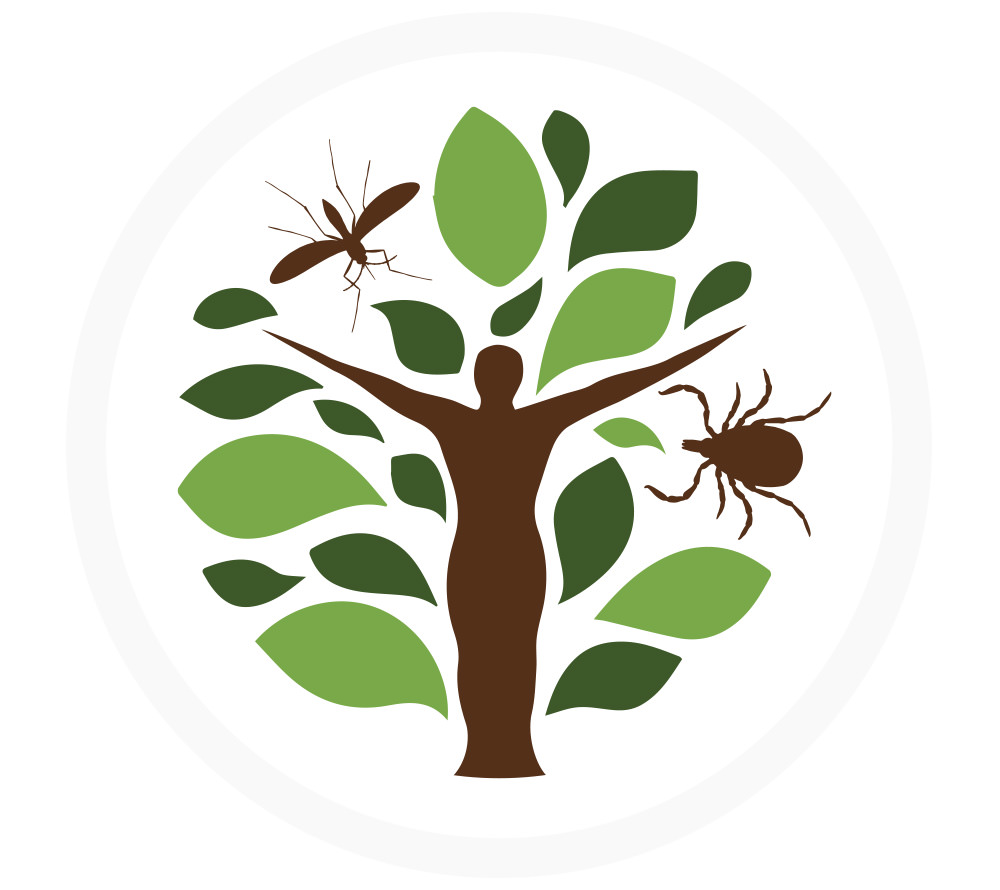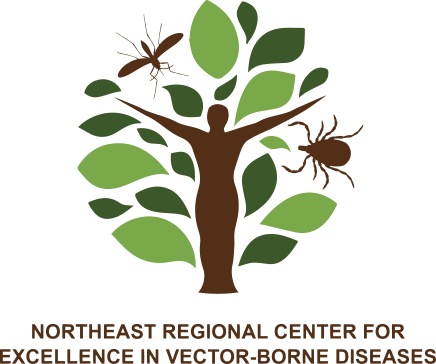Research Focus Area 5 Chemical Control of Disease Vectors and Monitoring of Pesticide Resistance in the Northeast
Effective vector control depends on careful assessment of existing and available control methods, and the detection and management of pesticide resistance. Our team of researchers are investigating vector control approaches, mapping pesticide resistance, and evaluating innovative approaches for tick control and pathogen management.
PROJECT AREA: Efficacy of New and Existing Insecticides
Effective vector control depends on careful assessment of existing and available control methods. A variety of vector control approaches have been explored to determine their efficacy in reducing tick abundance or prevalence of infection with tick-borne pathogens. Although acaricides have been shown to provide excellent tick control, demonstrating an impact on risk and disease incidence has been difficult. We will evaluate new methods and combinations of existing approaches for tick/pathogen management. We will also conduct a community-based evaluation of catch basin larviciding for the control of Culex mosquito populations and the prevalence of West Nile virus.These projects are conducted in partnership with Cornell Cooperative Extension, Suffolk County Department of Public Works, Connecticut Department of Energy and Environmental Protection, and several municipal mosquito control boards.
Lead Institutions: Connecticut Agricultural Experiment Station, Cornell University, Fordham University
Project Investigators:
- Theodore Andreadis, PhD Connecticut Agricultural Experiment Station
- James Burtis, PhD, Cornell University
- Moses Cucura, MS, Suffolk County Department of Public Works, Division of Vector Control
- Thomas Daniels, PhD, Fordham University
- Laura Harrington, PhD, Cornell University
- JR McMillan, PhD Connecticut Agricultural Experiment Station
- Kirby Stafford III, PhD, Connecticut Agricultural Experiment Station
- Scott Williams, PhD, Connecticut Agricultural Experiment Station
PROJECT AREA: Pesticide Resistance Monitoring
Project Overview: Regional measures of insecticide resistance have not been comprehensively investigated in the United States for mosquitoes or ticks. Measurement and scaling of the levels of resistance is critically needed to facilitate the use of appropriate control measures, particularly in the case of a disease outbreak. Objectives in this research area include compiling information about the most common pesticides used in the Northeast region as well as the status of ongoing pesticide resistance programs at the state- and county-level; address gaps in resistance monitoring activities by supporting programs with limited budgets through a resistance monitoring guidance and testing service; and development of resistance data sharing methods using for results of diagnostic insecticide bioassays and other mechanistic approaches to monitor resistance in mosquitoes and ticks to currently used insecticides in our region.
Lead Institutions: Connecticut Agricultural Experiment Station, Cornell University
Project Investigators:
- Philip Armstrong, ScD Connecticut Agricultural Experiment Station
- James Burtis, PhD, Cornell University
- Laura Harrington, PhD, Cornell University
- JR McMillan, PhD Connecticut Agricultural Experiment Station
- Joseph Poggi, Cornell University
Project-Related Publications:
- Burtis JC, Poggi JD, McMillan JR, Crans SC, Campbell SR, Isenberg A, Pulver J, White K, Zondag C, et al. 2020. NEVBD pesticide resistance monitoring network: establishing a centralized network to increase regional capacity for pesticide resistance detection and monitoring. Journal of Medical Entomology. tjaa236. doi:10.1093/jme/tjaa236
- Poggi J, Burtis J, Mader E, Harrington L. 2019 Pesticide Use and Resistance Monitoring in the Northeastern United States. NEVBD Reports. 30 April 2020. Available at: ecommons.cornell.edu/handle/1813/69865
NEVBD Pesticide Resistance Monitoring Program
The Northeast Regional Center for Excellence in Vector-Borne Diseases has established a pesticide resistance monitoring network covering the Northeastern region to support public health and mosquito control agencies in detecting pesticide resistance in mosquito populations. This effort is led by our postdoctoral associate Dr. James Burtis, at Cornell University.
PROJECT AREA: Project Area: Integrated Tick/Pathogen Management
Project Overview: A variety of vector control approaches have been explored to determine their efficacy in reducing tick abundance or prevalence of infection with tick-borne pathogens. These approaches include personal protective measures, host management, habitat modification, acaricide applications, host-targeted acaricides, and reservoir-targeted vaccines. Most of these approaches have produced varying degrees of success and are often implemented at the homeonwer level in residential settings. Our investigators are evaluating homeowner use and perception of integrated tick management strategies in the region. This work will be completed in partnership with the New York City Department of Health and Mental Hygiene and others.
Lead Institutions: Columbia University, Cornell University
Project Investigators:
- Mervin Cuadera, Cornell University
- Maria Diuk-Wasser, PhD, Columbia University
- Maria del Pilar Ferndandez, PhD, Columbia University
- Laura Harrington, PhD, Cornell University
- Daniel Mathisson, Columbia University
Project-Related Publications:
- Eisen, Lars and Kirby C. Stafford III. 2020. Barriers to effective tick management and tick bite prevention in the United States [Forum]. J Med Entomol. Epub ahead of print 6 May 2020; tjaa079. doi:10.1093/jme/tjaa079

